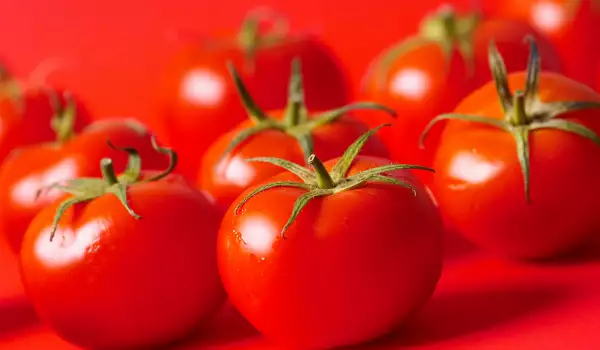Lycopene is a member of the carotenoid family and is a natural pigment responsible for the deep red color of some fruit and especially tomatoes. Lycopene itself is an active ingredient whose molecule is designed to bind to peroxyl radicals that could damage cellular DNA.
Unlike other carotenoids, lycopene has no provitamin A action, ie. does not convert to vitamin A. Therefore, its beneficial effects on health are mainly due to its action as a powerful antioxidant. In fact, laboratory experiments show that lycopene is a more effective antioxidant than other carotenoids, including beta-carotene. The main reason for intaking lycopene is its strong antioxidant activity. Its red molecule is thought to have 100 times more oxygen-capturing activity than vitamin E.
Lycopene Functions
Lycopene is particularly effective in suppressing a free radical called lower oxygen. Lower oxygen is a highly reactive form, that the free radical forms during normal metabolic processes, which reacts with fatty acids, which are essential constituents of cell membranes. Due to the fact that lycopene is contained in cell membranes, it plays an important role in the prevention of oxidative damage to membrane lipids and this way it affects the thickness and strength of membranes. Maintaining the integrity of cell membranes is a key factor in the prevention of various diseases.

In addition to its antioxidant activity, lycopene could inhibit tumor growth. One of the ways in which lycopene can restrict tumor growth is by stimulating cells to cellular communication.
Researchers believe that insufficient communication between cells is one of the reasons for the growth of abnormal cells, a condition that leads to the development of cancerous tumors.
Lycopene also plays an important role in preventing heart disease by reducing the damage that free radicals do to cholesterol.
Consuming lycopene can soothe acute pain from chronic inflammation - rheumatism, abdominal pain, thyroid problems, etc.
Recent studies show that lycopene can also increase sperm levels in infertile men.
The antioxidant has a positive effect on brain activity and the nervous system, protecting us from various diseases associated with them. Regular lycopene consumption improves concentration and memory and reduces the risk of Alzheimer's disease.
If you are prone to depression or are under a lot of stress and stress, eat more products containing lycopene. The element fights stress, calms the nerves and helps you to calm down faster. Lycopene does not allow depression to overwhelm you and if it has already done so, it will quickly get you out of this unhealthy state.

Eat more tomatoes if you want to lose a few extra pounds. Lycopene promotes weight loss. A three-day tomato diet, during which you do not eat anything else, can get rid of 3-4 kg.
It is important to intake lycopene to improve bone health. As we know, women are more prone to osteoporosis, because of the less bone tissue they have than men. Lycopene can significantly reduce the risk of developing the disease in old age.
Lycopene has the ability to be converted into vitamin A, which helps to slow down the aging process. In addition to keeping the skin young, lycopene removes harmful toxins from the body and all this has a positive effect on appearance. It promotes the production of collagen, which slows down the appearance of wrinkles.
The antioxidant softens the skin. It soothes irritations and reduces redness. You can find it in various face and body creams.
The beneficial properties of lycopene also have a positive effect on hair. They promote its growth, make it stronger and more elastic. Apart from the aesthetic appearance of the hair, lycopene has a positive effect on skin problems on the scalp. It fights hair loss and slows baldness in men.

Lycopene deficiency and overdose
Insufficient intake of lycopene and other carotenoids over a long period of time can lead to the development of a number of chronic diseases, including heart disease and various cancers. Studies show that diets low in carotenoids can increase the body's sensitivity to free radicals.
Excessive consumption of lycopene in turn can cause deep orange skin color - a harmless condition called lycopenoderma. Some studies have shown that under certain circumstances, lycopene and other carotenoids can oxidize and subsequently behave as free radicals and cause cellular damage. Cigarette smoke, for example, can cause lycopene to oxidize.
Excess lycopene can also lead to more serious and unpleasant reactions such as itching, swollen skin, rashes, digestive and respiratory problems.
We will not skip to let you know about the side effects, that you may get as a result of consuming lycopene. They are more common if you take it as a dietary supplement than through natural sources. These are nausea, vomiting, diarrhea, gas. The cases in which they are observed are extremely rare.
Lycopene is a substance that dissolves fats and as such requires the presence of dietary fats for proper absorption through the digestive tract. Therefore, lycopene levels in the body may be impaired by a diet that is extremely low in fat or by a disease that causes a decrease in the ability to absorb dietary fats such as pancreatic enzyme deficiency, Crohn's disease, cystic fibrosis, surgical removal of parts from the stomach, gallbladder disease or liver disease.
Cholesterol-lowering drugs lead to lower blood levels of carotenoids, including lycopene. Some foods, such as margarine, enriched with synthetic plant sterols or fat substitutes, which are used in the production of various snacks, can reduce the absorption of carotenoids.
Lycopene Properties

Lycopene plays an important role in the prevention or treatment of breast cancer, cardiovascular disease, cataracts, cancer of the cervix, lung, pancreas, prostate, skin, stomach and others. Lycopene and other carotenoids are vital for the normal growth of cells, as well as for their specialization in terms of performing various activities in the body. Lycopene has a very high concentration in the prostate gland and there is evidence that it reduces the risk of prostate cancer in men who regularly consume foods rich in lycopene. Some researchers believe that lycopene reduces the risk of tumors in the digestive tract.
Lycopene Sources
Lycopene is found in tomatoes, guava, apricots, watermelon, papaya and pink grapefruit. The lycopene content of tomato products increases when these foods are cooked at high temperature or cooked with oil. Lycopene is also found in dried basil and parsley, plums, beans, chicken livers, carrots, rose hips, red cabbage, asparagus and autumn olives.
Tomato puree contains the most lycopene - 150 mg. There are 41 mg of lycopene in watermelon, up to 13 mg in ketchup, 3 mg in pink grapefruit and up to 4 mg in fresh tomatoes.
As a dietary supplement, it is good to intake lycopene after consulting a doctor to determine that you are deficient in the substance. The recommended intake of the supplement is determined by age as the lower mark is 12 years. Admission depends on the individual condition of the patient, so consultation with a doctor is mandatory.















Comments